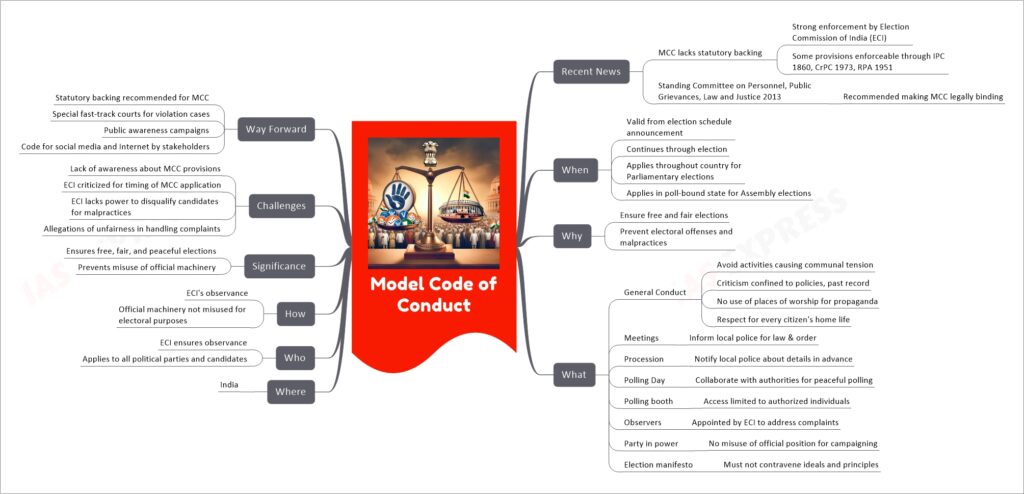Model Code of Conduct

The Model Code of Conduct (MCC) is a set of guidelines issued by the Election Commission of India to ensure free and fair elections in the country. It becomes effective from the date the election schedule is announced and applies throughout the country for Parliamentary elections, and within the poll-bound states for Assembly elections. The MCC covers various aspects, including general conduct, meetings, processions, polling day activities, use of polling booths, and the behavior of the party in power, to prevent any actions that could affect the outcome of the elections. While it lacks statutory backing, some of its provisions are enforceable through other statutes like the Indian Penal Code (IPC), the Code of Criminal Procedure (CrPC), and the Representation of the People Act (RPA). Challenges include a lack of awareness among stakeholders, criticism regarding the timing of its application, and limitations in ECI’s powers. Experts suggest providing statutory backing to the MCC and establishing special fast-track courts for quicker resolution of violations.
If you like this post, please share your feedback in the comments section below so that we will upload more posts like this.

